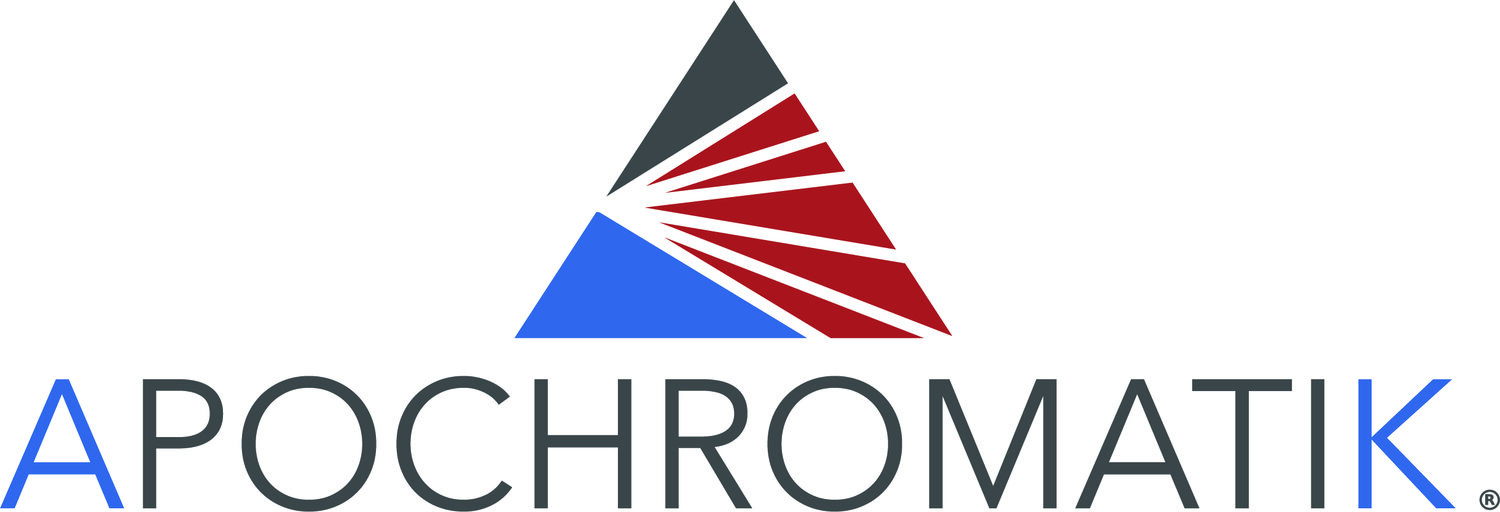The blog for all things Apochromatik.
Farther, Faster…

Employee Engagement & Business Performance
According to a 2022 report from Gallup, companies that score high in employee engagement more than double their odds for success compared to those who score low in employee engagement.
So what is employee engagement and how can you use it for the betterment of your employees and company? We’ve prepared a free resource on employee engagement and first steps to increase yours.

The Cross-Generational Challenge: How Teams Can Unlock Their Hidden Potential in a Five Generation Workplace
“If they want their job, they better get themselves back in the office. The office is where work gets done and if they aren’t here, they aren’t getting work done.” These were the first words from an octogenarian senior law firm partner in response to our recent question, “How do you feel your firm will respond to the desire for a hybrid work model?” Ironically, the conversation eventually moved to the current difficulty in hiring.

Apochromatik's Mentoring Month Roundup
January was National Mentoring Month. Mentoring can be one of the most beneficial tools in your career toolbox, but it can be intimidating to figure out how to get someone to mentor you, and it can be easy to give up if you sense a prospective mentor or mentee isn’t excited about working with you. We addressed aspects of mentoring in depth on the blog during January in the Apochromatik Guide to Mentoring, and provided the Apochromatik Mentor Finder: The Five Step Method to Find Your Mentor, a free tool you can download to start working on finding your mentors.
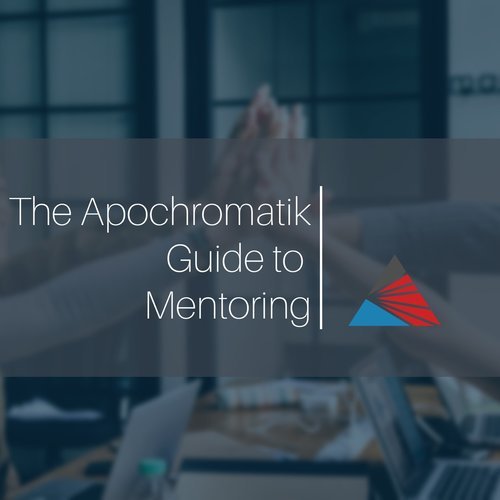
The Apochromatik Guide to Mentoring: Part V – The Three Types of Mentors Every Professional Needs to Succeed
During National Mentoring Month, we’ve talked about mentor and mentee expectations, and differences between sponsors, mentors, coaches, and friends. We also addressed how to know whether you’re ready to be a mentor. Today, we’re tackling the three types of mentors that every professional needs to succeed. If as you read this, you realize you’re missing one or more of these three essential mentor types, know that you’re not alone, and download the free Apochromatik Mentor Finder tool by joining the Apochromatik email list.
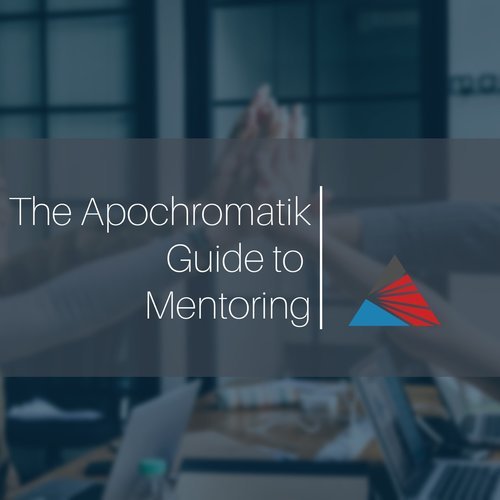
The Apochromatik Guide to Mentoring: Part IV – How do You Know Whether You’re Ready to be a Mentor?
January is National Mentoring Month, so we’ve been focusing on mentoring here on the Apochromatik blog.
We’ve addressed differences between sponsors, mentors, coaches, and friends , mentor and mentee expectations, and the one thing you must do to make the most of a formal mentoring program. Tomorrow we will cover the three types of mentors that every professional needs to succeed. If as you read this, you realize you’re missing one or more of these three essential mentor types, know that you’re not alone, and download the free Apochromatik Mentor Finder tool by joining the Apochromatik email list to get a jumpstart.
But today we are addressing a question we’ve been asked many times: How do you know whether you’re ready to be a mentor?

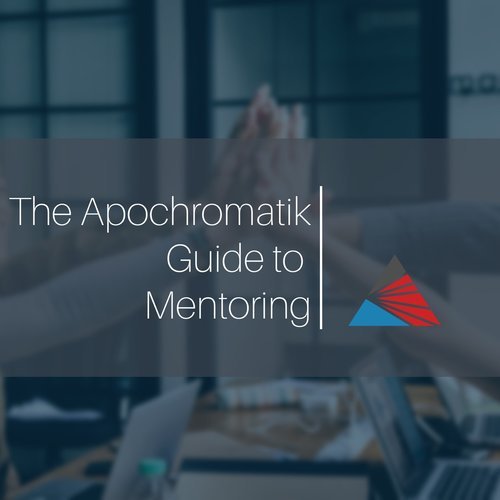
The Apochromatik Guide to Mentoring: Part III – The One Thing You Must Do to Make the Most of a Formal Mentoring Program
Not everyone is involved in formal mentoring programs, but we’ve had several requests to address how to make them more worthwhile.
Before we jump into that topic, though, January is National Mentoring Month, so we’ve talked about mentor and mentee expectations, and about differences between sponsors, mentors, coaches, and friends. Later this week we will tackle the three types of mentors that every professional needs to succeed, but if you can’t wait to get started strengthening your own mentor relationships, download the Apochromatik Mentor Finder tool by joining the Apochromatik email list.
Back to how to make the most of a formal mentoring program.
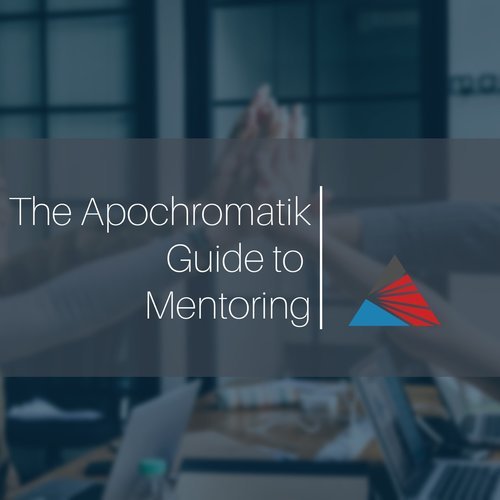
The Apochromatik Guide to Mentoring: Part II – 8 Things Mentees and Mentors Want
Last week we addressed the differences between mentoring, sponsorships, coaching, and friendships, and delved deeper into mentoring. This week, we’ll focus on what mentors and mentees want from each other. When mentors and mentees have differing expectations, problems can crop up in the relationship or, even worse, cause it to fall apart completely. By understanding what your counterpart wants, your relationship can be positive and productive for both of you.

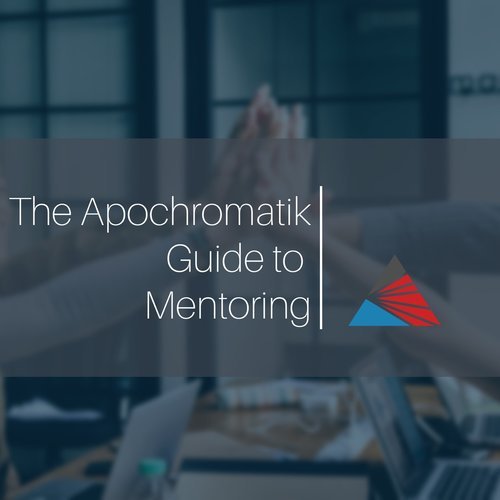
The Apochromatik Guide to Mentoring: Part I – Distinguishing between Mentors, Sponsors, Friends, and Coaches
Mentoring is often touted as a solution to problems in the workplace, from retention and promotion of women and people of color to increasing camaraderie and overall job satisfaction. While mentoring is not a panacea, it is a tool that can, through thoughtfully designed programs and invested participants, move the needle on all of those. But, while Apochromatik’s services include working with employers to design mentoring programs and ensure they’re effective, not everyone has quite figured out that they need us. (Side note: if your employer’s mentoring program needs our advice, or if you’re involved in a non-profit with a mentoring program that could benefit from a quick training for mentors and mentees, let us know.)
As we launch this series on mentoring, this week we’ll address the difference between mentors, sponsors, friends, and coaches. In future posts we’ll address tips to be a good mentor, tips to be a good mentee, the three types of mentors you need in your career, and more – all to help you find and foster the kind of mentoring relationships that can help you succeed.

